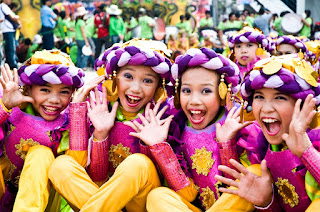The Misunderstood Cebuanos
I tell to most of my friends that I actually do not speak Filipino as my mother language. Ofcourse, the most natural question I get is what language do I speak? I answer Cebuano and explain that it is the second most spoken of the Philippine language. It is not a dialect, and the people that speaks it are popularly known as Cebuanos. However, due to the cultural and linguistic diversity among groups in the Philippines, misunderstanding occur very often. And this blogspot is all about the often misunderstood Cebuanos.
Fatalism, Realism and Resilience
The Cebuano has undergone a lot of bad things in the past. Cebuanos in the southern island of Mindanao could be followers of Islam or belong to an indigenous group. Being part of another religious and cultural group could mean oppression by a larger group. The Spaniards and Americans tried to suppress any resistance in the group. When the country became independent, co-Filipinos in Manila oppressed and associated the Cebuano culture and language as inferior. Civil wars have plagued the Southern Philippines, while the Central Philippines is subject to typhoons, earthquakes and calamities that challenges the entire group.
Because of these circumstances, people accept death as part of the hard reality. People even joke about it, and threaten to kill people as either half-truth or half-joke. Some could not take that well, even other Filipinos could not accept that. Death somehow is used to symbolize change or clamor for something different. Not all likes that, or even used to that. So before one would sue for another for a death threat, one should evaluate the statement first as a joke, then as an indirect message that one should take seriously.
Expectations on Communal Cooperation
A Cebuano would expect other Cebuanos, especially those speaking the same dialect to help in times of distress or emergency like a family member. The expectation is so high that misunderstanding could happen. People think they could just borrow anything from anyone speaking Cebuano. This is not somehow observed among those Filipinos living in the metropolis, who value more individualism than communalism.
As a result, Cebuanos have a strong sense of loyalty that binds in the community. This provides a sense of protecting one's own. Cebuanos would tend to support anyone who represent them and the culture, no matter what that person does. A Cebuano could support a Cebuano-speaking Robin Hood than a non-Cebuano-speaking saint. The logic is therefore less than communal loyalty and integrity.
Religion, Conservatism and Paternalism
Religion plays a crucial role among Cebuanos. Some may associate everything to religion and everything that is prohibited because of it. There are many traditions that Cebuanos follow that may also contradict religion itself. Everything is what God has control in. However, compared to metropolitan Filipinos living around capital Manila, Cebuanos are more traditional, less liberal and a little bit more conservative. One could be judged by neighbors and relatives based on how adheres with customs, mores and tradition.
Because of this, it is natural also that traditionally the head of family is often a male, who could decide in behalf of the entire familial unit. So, one could wonder why some Cebuanos would refer to what has God wants, tradition dictates or the head of family has chosen, as to why they do some actions for themselves or others Quite miopic but it is common among Cebuanos.
Just like any other group with a unique mixture of the historical and cultural influences, the Cebuano could be misunderstood. However, one should understand that one should refrain from making generalizations. Often, the misunderstanding happens among fellow Filipinos. This blogpost should remember that relativity and diversity of cultures is significant that requires everyone tremendous respect to nurture something common, rather than difference.











Comments
Post a Comment